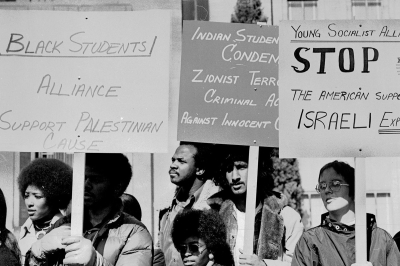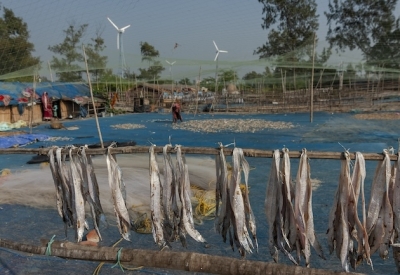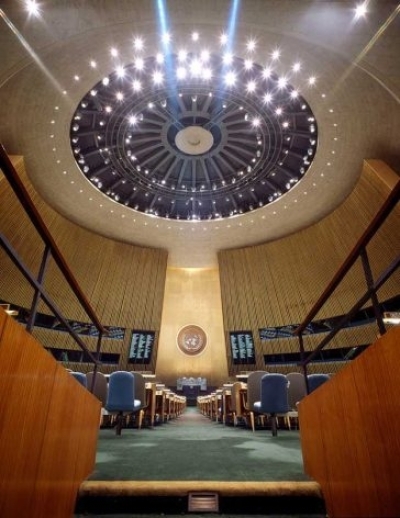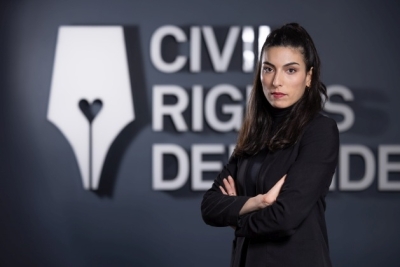Achieving the 17 Sustainable Development Goals (SDGs) can seem link “a staggering proposition” for resource-starved small island developing States, but in Trinidad and Tobago, an “inexorable spirit” is helping the country get closer to realizing the challenging targets.
That’s according to Joanna Kazana, the UN Resident Coordinator for Trinidad and Tobago, Aruba, Curacao, and Sint Maarten.
On 18 September, countries from around the world will come together at the SDG Summit in New York to take stock of what progress has been made ahead of the 2030 deadline for the goals to realized.
“For a country or economy of any size, achieving the SDG agenda is ambitious. For small island developing States, the task can be a staggering proposition.
A total of 17 SDGs and 169 targets must be met by 2030.
For Trinidad and Tobago, there is an added layer of complexity; its high per capita income makes the country ineligible for Official Development Assistance (ODA) finance, despite the many structural vulnerabilities it faces, exacerbated by climate change, global shocks, and the illegal trade of weapons and drugs.
When it comes to SDG financing and the potential for new investments, Trinidad and Tobago has to rely largely on its own budgetary resources. The UN, bilateral donors, and international financial institutions provide grants for important work, but these projects are limited in scale and duration.
That means the monumental strides required to achieve sustainable development demand greater domestic resource mobilization, innovative thinking, and unconventional partnerships.
The SDGs are both the shared vision and the practical reference framework to guide this journey.
With just six years left, achieving the SDGs may seem daunting.
But it is not impossible, and Trinidad and Tobago is proof of the inexorable spirit required to cross the finish line.
Halftime huddle
Earlier this month an SDG Roundtable consultation was convened by the Ministry of Planning and Development in the capital, Port of Spain, to pinpoint which SDGs need accelerated momentum to be on track by 2030.
The pride, patriotism and perseverance that are hallmarks of the 1.3 million people who call these islands home, flowed seamlessly into the discussions.
More than 100 voices from the public and private sectors, civil society, international financial institutions, community-based organizations, and the global development community sat around a table that filled the venue.
Data show that Trinidad and Tobago has made significant progress on some of the SDGs, while others require review and acceleration. A number of SDG targets have slowed or stagnated.
While important work is happening in these areas, a jumpstart is needed to rejuvenate momentum.
Existential questions
Participants in the room began tackling what feel like existential questions about the country’s future.
What does “getting it right” by 2030 look like?
What strategic commitments should we make to accelerate SDG progress?
What are the top three or five SDGs where progress could act as a stimulus, like a rising tide lifting all 17 Goals?
What is the story that Trinbagonians want to tell their children, and the world, about the heroic efforts and choices being made now to build a better future for Trinidad and Tobago?
The chorus of answers from the audience was unanimous on a few key themes.
Better data and national statistics: All stakeholders agree the country needs more robust tools to make data-driven decisions.
As Minister of Planning and Development, Pennelope Beckles, succinctly stated it in her remarks, ‘what does not get measured, does not get done.’
Without more timely data being produced and collated, it is difficult to track the SDGs. That means it’s also challenging to know where to target stimulus funding.
The human resources, skillset, and strategic direction required to collect, streamline, and analyse data may be uneven across the public sector.
Digitization of government services would bring immediate benefits in this area. The private sector also has a role it can play in sharing relevant data to improve the country’s data ecosystem and monitoring capacity.
Poverty reduction
The issue of poverty was raised time and again during the three-hour discussion. A private sector leader linked poverty to poor education outcomes and increased risk of delinquency. A health professional highlighted the interplay between poverty and inequality.
A public officer spoke about the need to measure poverty through a multidimensional lens. Deprivation, health outcomes, and housing are all factors to measure alongside household income.
Quality education
When participants discussed education, the synthesis between the 17 Goals became more apparent.
One participant pointed out the limited capacity of the education system to accommodate persons with disabilities. Another cited challenges facing university graduates, who struggle to find jobs that match their area of study. She said the resultant brain drain diminishes the local talent pool.
A private sector representative advocated for the education system to produce job creators instead of job seekers.
Yet another contributor called for a restructured curriculum to prepare students for the labour market disruptions that have already begun as artificial intelligence (AI) takes root.
Why do girls perform better at school? How does childhood wellbeing and youth vary between boys and girls?
With education outcomes linked to Decent Work and Economic Growth (SDG 8), Gender Equality (SDG 5) and Reduced Inequalities (SDG 10), there was agreement among participants that targeting this area can yield ripple effects across the SDG agenda.
Peace and security
From the business leader to the civil society advocate, the issue of violence recurred throughout the discussion as an imperative focus.
Whether they were talking about the young men who slide into delinquency or the costs of insecurity on a company’s bottom line, every sector in the room identified a different impact of crime on society.

Billions of dollars are already spent annually on crime response and prevention by the Ministry of National Security and other state-run social protection programmes.
Progress in achieving other SDGs linked to inequality, access to education, and poverty could produce significant benefits in reducing violence. That would save the country money it could invest into developing its human capital.
I believe that human security is a public good. Like water in your taps, electricity, communication, and transport infrastructure, security can be delivered and nurtured by everyone to make this country a paradise for people and for business.
Targeted strategy
Trinidad and Tobago, like all UN Member States, has been asked to declare three clear, targeted actions it will take to rescue the SDGs.
This declaration will feature centre stage, as Trinidad and Tobago now holds the presidency of the UN General Assembly.
But, the benefits of the national roundtable will last long after the SDG Summit in New York ends.
It brought together a network of willing development partners who found common ground. It offered direction for the Government’s halftime strategy review on a revitalized plan of action for the SDGs over the next six years.
And it reinforced the commitment to achieving equitable progress and prosperity — with a resounding win in the second half.”
UN Resident Coordinator
- The UN Resident Coordinator, sometimes called the RC, is the highest-ranking representative of the UN development system at the country level. In this occasional series, UN News is inviting RCs to blog on issues important to the UN and the country where they serve.
- Learn more about the work of the UN in Trinidad and Tobago here.
- Find out more about the UN Development Coordination Office here.





